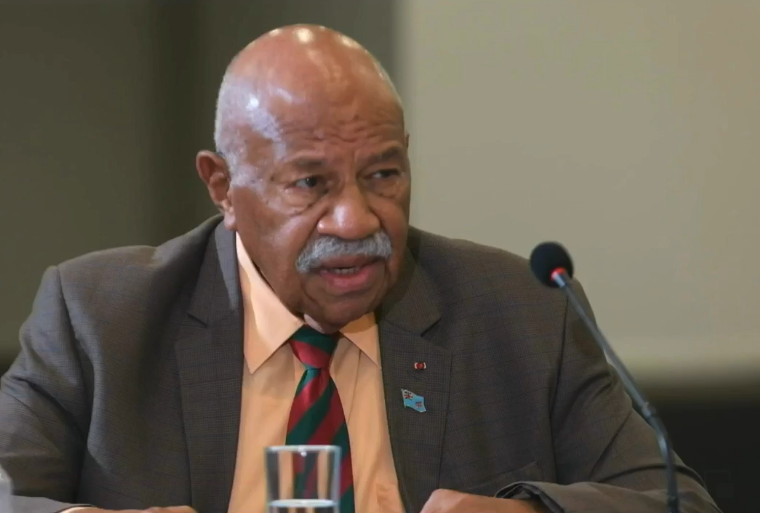Prime Minister Sitiveni Rabuka is delivering his witness statement before the Truth and Reconciliation Commission, reflecting on key moments that shaped his political life and the events leading up to the 1987 coups.
Rabuka recalled a conversation from 1977, during his time in the military, when friends questioned the political direction of the country.
“They did not know that the Alliance was an old, multiracial group made up of the Fijian Association, Indian Alliance, and the General Electors Association,” he said.
He said the exchange, “probably reinforced by the beer we had been drinking that night,” led to a heated discussion.
“They said, ‘How can you allow that to happen?’ I said, ‘I didn’t. We didn’t allow that — the people decided that.’ I told them in the mess that night, 1977, ‘If it happens again, you will hear of me.’”
Rabuka recounted that on the morning of the 1987 coup:
“For an hour after 10 o’clock, I was in Dr. Bavadra’s office making sure that all his papers were properly stored away and delivered to him. When the phone rang, that same group of friends immediately called me — ‘Congratulations,’ they said.”
The Prime Minister also reflected on his upbringing and military career, describing it as a sheltered path that distanced him from the realities of the broader public.
“I was sort of insulated from what other people in the open public experienced. I was brought up in boarding schools and straight into the barracks — a protected environment — although I had many friends of other races.”
Rabuka spoke about his service in Hong Kong, where he learned about internal security doctrines of the Gurkhas that allowed the use of lethal force.
“They were allowed to use their weapons and to shoot to kill,” he said. “So in 1987, when there was unrest on the streets, I told my deputy, ‘We cannot afford to use what we now have in our internal security documents in Fiji.’”
He emphasised that such tactics, borrowed from the British colonial system in Hong Kong, were not suitable for Fiji.
“We had to find ways of dismantling the groups causing disturbances without shooting anyone,” he said. “My deputy told me, ‘But sir, the book says—’. I said, ‘I know why the book is written that way.’ It was written for an army operating in a different place, under different circumstances.”



